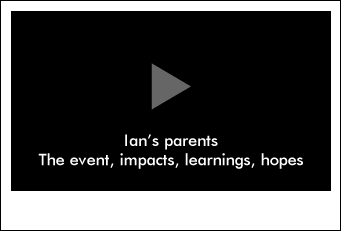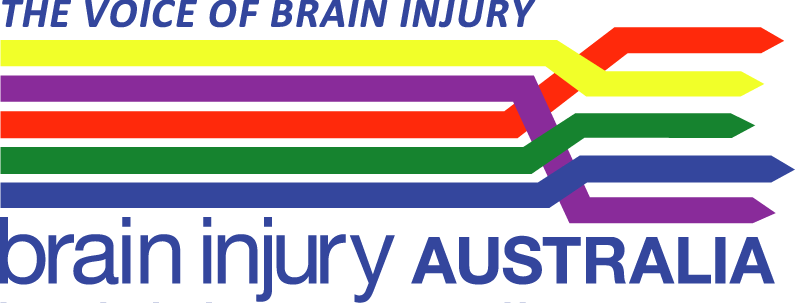- MODULE 1: Introduction to ABI
- Module Introduction
- Take the Pre-test
- a) A person’s abilities & life span
- b) What is ABI?
- c) Causes of ABI
- d) Incidence
- e) The brain
- f) Severity of ABI
- g) Cause to impact
- h) Rehabilitation
- i) Rehabilitation stages & pathways
- j) Common effects
- k) Impacts on life
- l) People with ABI
- m) Family and friends
- n) Key messages and
Tools to explore in Module 2 - o) Building skills
- Take the Post-test
m) Family and friends 
i) Issues for carers friends and family members
Issues that carers, friends and family members may have to work through and/or deal with are:
- The extent of personality & behaviour changes
- Changes to accommodation needs
- Managing respite for themselves and their family member with ABI
- Access to social support
- Access to behaviour support
- Understanding and managing mental health issues following ABI
- Involving others in their lives, loss of privacy.
ii) Ian's parents Clip 7 (6 mins)
Ian's parents talking about the event that caused the ABI, the impact that it had, what they have learned and what they are hoping for. (6 mins)
Click on the image to go to the video player
Answer the folowing question
That's our biggest concern. Just somebody who is able to look after Ian's interests one hundred percent.
What we are looking for is more Mums and Dad's when we are gone. A pipe dream.
People working with people with ABI have considerable practice wisdom. The following has been distilled in discussions with people with ABI, their family, friends, support workers and case managers.
iii) Family members
- Having a family member with a brain injury is one of the most serious challenges a family can face.
- Families cope in many different ways.
- Learn about acquired brain injury.
- The person with the ABI will be the same but different.
- Understanding how they are different is a key part of moving on.
- The person with the ABI needs to be part of the decision making.
- Identify specific strategies that help you deal with specific problems (labelling drawers, using memory aids, etc
- Creatively find ways around ongoing difficulties and see this as steps towards recovery
- You are part of a wider team of people.
- Sharing information will help with the provision of services.
- Gains are possible but often slow in coming.
- All members of the family have needs. Understand your family dynamics and your family's needs.
- Everyone in the family will go through loss, grief and re-discovery.
- The process of coping with a family member with an ABI constantly changes.
- Families often have less stress when they actively try to find solutions to problems than when they avoid the problems trying not to think about it or avoiding dealing with it.
- Looking after yourself is essential. Notice what forms of practical and emotional support your need and how to get them.
- Having a break is OK.
- It is OK to ask.
- It is OK to complain.
- Don't get swamped by information - look for useful information when it will be relevant to you.
iv) Friends
- The person with the ABI needs friends.
- It is easy for friends to drop away because they no longer understand the person with the ABI.
- The person with the ABI will be the same but different.
- Understanding how they are different is a key part of moving on.
- Understand what the future is for this person.
- What do I need to know to understand how to relate with my friend now.
- The person with the ABI needs to be part of the decision making.
- You are not alone with this experience.
- You are part of a wider team of people.
- Friends go through grief, loss and re-discovery of their friendship.
- Sometimes social boundaries can be crossed, stepping across previous boundaries - friends - sexual boundaries.
- Be clear about your friendship and the degree of commitment that's realistic for you to stay connected with this person's life - visiting once a week, once a month, etc.
- How can you support this person to be connected into the wider community?


